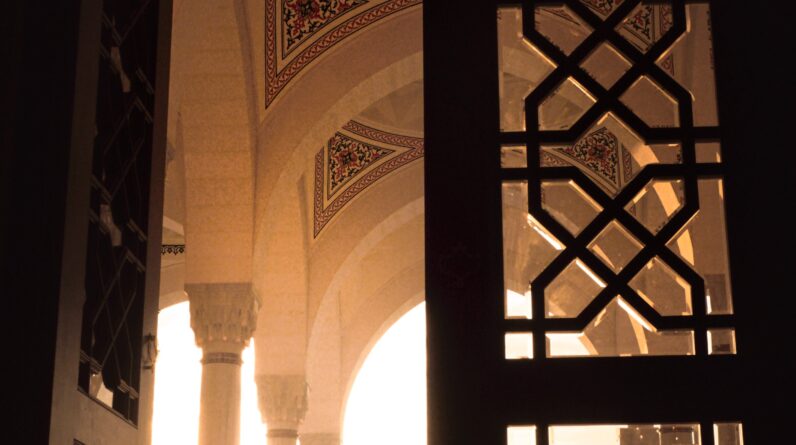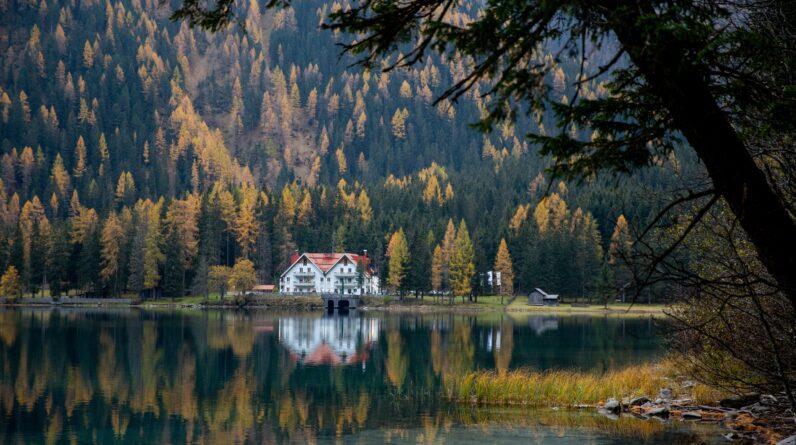
Las Vegas, the city of neon lights and endless excitement, has long been a top destination for travelers seeking both luxury and adventure. However, behind the dazzling facade of the bustling Strip, a number of once-famous hotels have quietly closed their doors. These closures tell intriguing tales of economic shifts, changing tourist preferences, and the ever-evolving landscape of this iconic city. **Understanding why these hotels closed** provides a unique glimpse into the dynamics that shape Las Vegas.
From the legendary Sands Hotel, which once hosted the Rat Pack, to newer establishments that couldn’t withstand market pressures, each closed hotel has its own story. The reasons behind these closures are diverse, ranging from financial difficulties and corporate mergers to shifts in the tourism industry and the rise of new entertainment hubs. As we delve into these stories, you’ll discover the rich history and fascinating transformations of Las Vegas.
Whether you’re a history buff, a travel enthusiast, or simply curious about the hidden stories of Sin City, this exploration will captivate your imagination. So, let’s embark on this journey through time and unveil the secrets behind the closed hotels of Las Vegas.
Visit our website to learn more and get started today! Click here.
Historical Significance of Closed Hotels

The closed hotels of Las Vegas are not just relics of the past; they are landmarks that once played pivotal roles in the city’s history. Take, for instance, the Sands Hotel. Opened in 1952, it quickly became the epicenter of entertainment, hosting legendary performances by Frank Sinatra, Dean Martin, and Sammy Davis Jr. The Sands was more than just a hotel; it was a cultural phenomenon that defined an era.
Similarly, the Dunes Hotel, which opened in 1955, was a trailblazer in introducing exotic themes and grandiose entertainment to the Strip. Its Arabian Nights-inspired architecture and elaborate shows drew tourists in droves, setting a new standard for hospitality and spectacle in Las Vegas. The Dunes’ closure in 1993 marked the end of an era and paved the way for the modern mega-resorts we see today.
Another notable mention is the Stardust Hotel. Founded in 1958, the Stardust was famous for its futuristic themes and was a pioneer in the integration of technology and entertainment. It was also home to the Lido de Paris show, which was one of the longest running shows in Las Vegas history. The hotel’s closure in 2006 was a nostalgic moment for many, signifying the transformation of Las Vegas from its vintage charm to its contemporary glitz.
These closed hotels were not just businesses; they were icons that contributed to the unique tapestry of Las Vegas. Their historical significance goes beyond their luxurious facades, as they were the stages upon which the city’s glamorous and sometimes tumultuous history played out.
Reasons Behind Hotel Closures

The closure of iconic Las Vegas hotels often stems from a complex web of factors, ranging from economic challenges to shifts in consumer preferences. One of the primary reasons is the economic downturns that periodically impact the hospitality industry. For example, the 2008 financial crisis led to a significant decline in tourism, causing several hotels to shutter their doors as they struggled to stay afloat.
Another critical factor is the evolution of consumer tastes. As travelers demand more luxurious and modern amenities, older hotels find it increasingly difficult to compete. This was the case with the Riviera Hotel, which, despite its rich history, couldn’t keep up with the newer, more opulent resorts on the Strip, leading to its closure in 2015.
Moreover, corporate acquisitions and mergers often result in the closure of well-known hotels. When large hospitality corporations acquire older properties, they sometimes opt to demolish and rebuild to align with their brand image and market demands. The Stardust Hotel‘s closure is a prime example, as it was demolished to make way for the more contemporary Echelon Place, although the project was eventually shelved.
Lastly, the increasing land value on the Las Vegas Strip plays a significant role. As the land becomes more valuable, there is a strong incentive for hotel owners to sell their property for redevelopment. This was evident in the case of the New Frontier Hotel, which closed in 2007 to make room for the Plaza Hotel, a project that has yet to materialize.
Understanding these reasons provides insight into the dynamic nature of Las Vegas’s hospitality industry. It highlights how economic shifts, evolving consumer preferences, corporate strategies, and real estate trends collectively influence the fate of these iconic establishments.
Impact on Las Vegas Tourism

The closure of prominent Las Vegas hotels inevitably leaves a mark on the city’s vibrant tourism landscape. For one, these closures often result in a temporary dip in the number of available accommodations, which can affect the overall capacity of the city to host visitors. This scenario can lead to increased room rates at remaining hotels, as the supply-demand dynamics shift, potentially making Las Vegas a more expensive destination during peak periods.
Another significant impact is on the employment sector. Las Vegas hotels are major employers, and their closure results in the loss of numerous jobs, affecting the livelihoods of many residents. The economic ripple effect extends beyond the immediate job losses, influencing local businesses that rely on hotel guests, such as restaurants, retail stores, and entertainment venues.
Moreover, the closure of iconic hotels can affect the city’s cultural heritage and identity. Many of these establishments have been part of Las Vegas’s allure, featuring in movies, hosting legendary performances, and becoming landmarks in their own right. When such a hotel closes, it can feel like the end of an era, impacting the nostalgia and historical narrative that attract many visitors.
On the flip side, these closures can also pave the way for modernization and innovation within the city. New developments often bring cutting-edge architecture, advanced amenities, and fresh entertainment options, which can rejuvenate the city’s appeal. This cycle of renewal is part of what keeps Las Vegas exciting and continuously evolving, ensuring that it remains a top-tier destination for tourists from around the globe.
In essence, while the closure of hotels presents challenges, it also offers opportunities for growth and transformation, contributing to the dynamic nature of Las Vegas tourism.
Memorable Hotels That Closed
Las Vegas is known for its glitz and glamour, but it has also seen the end of some truly memorable hotels. These establishments were more than just places to stay; they were iconic landmarks that left an indelible mark on the city’s history.
One such hotel was the Stardust Resort and Casino. Opened in 1958, the Stardust was a pioneer of the Las Vegas Strip, famous for its neon signage and classic Vegas charm. The Stardust not only hosted numerous celebrities but also played a significant role in pop culture, appearing in movies like Casino.
Another unforgettable venue was the Sahara Hotel and Casino. Established in 1952, the Sahara was a hotspot for legendary performers such as Frank Sinatra and the Rat Pack. With its Moroccan-themed decor and lavish shows, it epitomized the old-world glamour of Las Vegas. The hotel closed its doors in 2011, marking the end of an era.
The Riviera Hotel and Casino is another name etched in the annals of Las Vegas history. Opened in 1955, the Riviera was one of the oldest casinos on the Strip and hosted stars like Liberace and Dean Martin. It was also featured in several films, adding to its legendary status. The Riviera closed in 2015, and its demolition made way for new developments, yet its legacy endures.
These hotels were more than just buildings; they were chapters in the colorful story of Las Vegas. Their closures signify not just the end of their physical presence but also a shift in the cultural and historical fabric of the city. As Las Vegas continues to evolve, the memories of these iconic hotels will remain a cherished part of its rich heritage.
Future of Las Vegas Hospitality

The ever-evolving landscape of Las Vegas hospitality is a testament to the city’s resilience and adaptability. Despite the closure of several iconic hotels, the future of Las Vegas is filled with promise and innovation.
One of the most exciting developments on the horizon is the rise of luxury boutique hotels. These smaller, more intimate establishments offer personalized service and unique experiences that cater to discerning travelers. Properties like the Nomad Las Vegas and the Crockfords Las Vegas are leading this trend, providing a sophisticated alternative to the mega-resorts that dominate the Strip.
Additionally, Las Vegas is embracing the concept of sustainable and eco-friendly hospitality. New hotels are being designed with green practices in mind, from energy-efficient systems to sustainable building materials. Resorts like the Vdara Hotel & Spa and the Aria Resort & Casino are already setting benchmarks in environmental responsibility.
Technology is another driving force behind the future of Las Vegas hospitality. From advanced booking systems to AI-powered concierge services, tech innovations are enhancing the guest experience. Imagine checking into your room via a mobile app, or having a virtual assistant cater to your every need—these are just glimpses of what the future holds.
Moreover, the city is expanding beyond gaming to offer a diversified array of entertainment options. World-class dining, immersive shows, and wellness retreats are becoming integral parts of the Las Vegas experience. The integration of these elements ensures that the city remains a top destination for tourists worldwide.
As Las Vegas continues to reinvent itself, one thing is certain: the spirit of innovation and excitement will always be at its core. The future of Las Vegas hospitality looks brighter than ever, promising to deliver unforgettable experiences to all who visit.
Visit our website to learn more and get started today! Click here.







